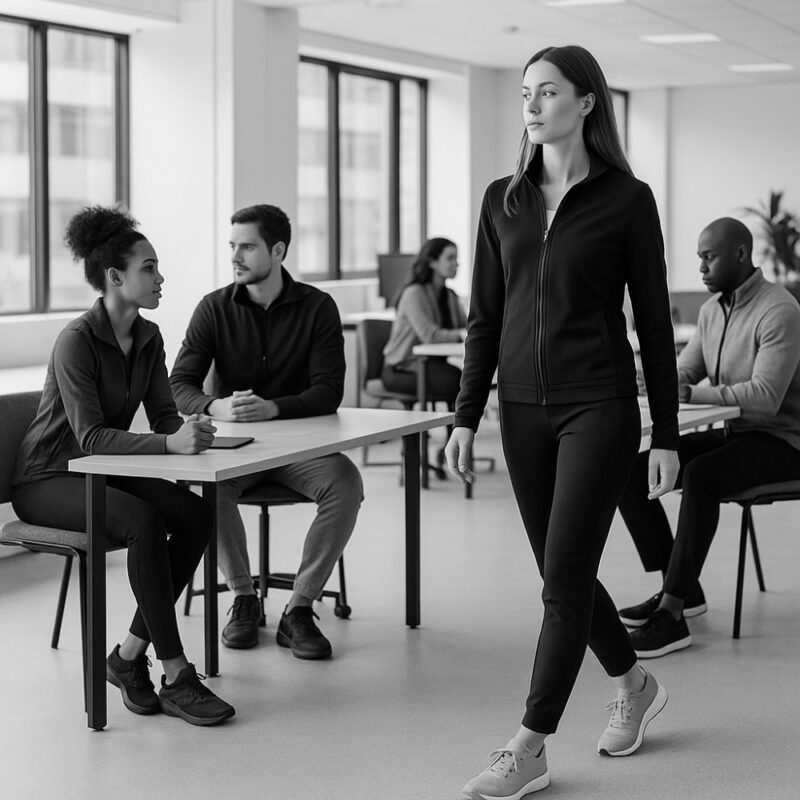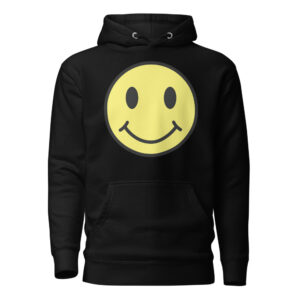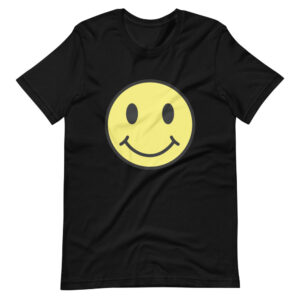-
×
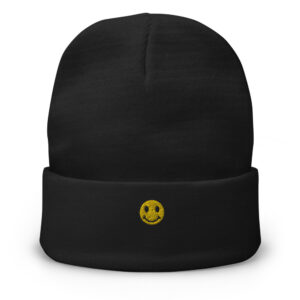 Have a Nice Day Beanie
1 × $111.00
Have a Nice Day Beanie
1 × $111.00 -
×
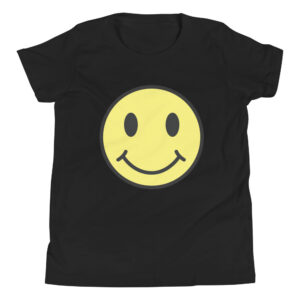 Have a Nice Day Kids T-Shirt
1 × $111.00
Have a Nice Day Kids T-Shirt
1 × $111.00
Dressing Smart Doesn’t Mean Dressing Stiff
Athleisure wasn’t always meant for the office. What started as a fitness-forward style for errands or casual weekends has quietly taken over corporate culture. As work environments have shifted post-pandemic and dress codes have relaxed, the lines between performance wear and professional attire have blurred — and athleisure now plays a starring role in what people wear to work.
Why Athleisure Rose to Power
The rise of athleisure is rooted in more than just a desire for comfort. The transition to remote and hybrid work accelerated a cultural shift already in motion: people wanted versatility, ease, and functionality in their wardrobes. Traditional workwear — pencil skirts, stiff blazers, buttoned-up shirts — felt out of step with modern life.
Brands noticed and responded. Major athletic labels started releasing tailored joggers, sleek leggings, and structured hoodies that could pass for work-appropriate gear. Meanwhile, fashion houses began integrating performance fabrics into their designs. Suddenly, moisture-wicking materials and elastic waistbands were not just acceptable — they were aspirational.
From Gym to Boardroom
The modern office now embraces style hybrids: blazers paired with leggings, collared shirts tucked into tech-knit trousers, or sneakers styled with structured dresses. This wasn’t just about dressing down — it became a matter of dressing smart. Athleisure offered more freedom of movement, less laundry stress, and enough polish to maintain a professional image.
Workplace norms have caught up, too. Many companies — especially startups, creative fields, and tech environments — have dropped formal dress codes altogether. What matters now is presence, performance, and practicality, not whether you’re wearing leather loafers.
Style Meets Functionality
What makes athleisure office-ready isn’t just a pair of leggings or a hoodie — it’s how you wear them. Today’s elevated athleisure features minimalist design, neutral tones, and structured silhouettes. Think joggers that mimic trousers, zip-ups with clean lines, and footwear that looks sharp without sacrificing comfort.
The best athleisure brands now cater specifically to workwear demands. Pieces are engineered to resist wrinkles, maintain shape throughout the day, and transition seamlessly from your desk to dinner. It’s not just about dressing down — it’s about dressing wisely.
The Wellness Factor
There’s also a psychological element at play. Athleisure taps into the wellness mindset that values balance, mindfulness, and movement. When your clothes support how you feel — unrestricted, relaxed, and ready — your productivity can benefit too.
The comfort of athleisure also aligns with broader wellness goals. Sitting through long meetings or working on your feet is easier in breathable, stretchy fabrics. It reduces friction — both physical and mental — allowing professionals to focus more on their work and less on their discomfort.
Where Athleisure Goes Next
Athleisure’s success in the workplace doesn’t mean the end of formalwear, but rather its evolution. Instead of rigid dress codes, we now see adaptive wardrobes that blend function with flair.
Expect to see even more innovation in this space: sustainable performance fabrics, customizable fits, and even AI-powered clothing recommendations tailored to your workday. As our definition of professionalism evolves, so will the clothes we choose to wear to embody it.


